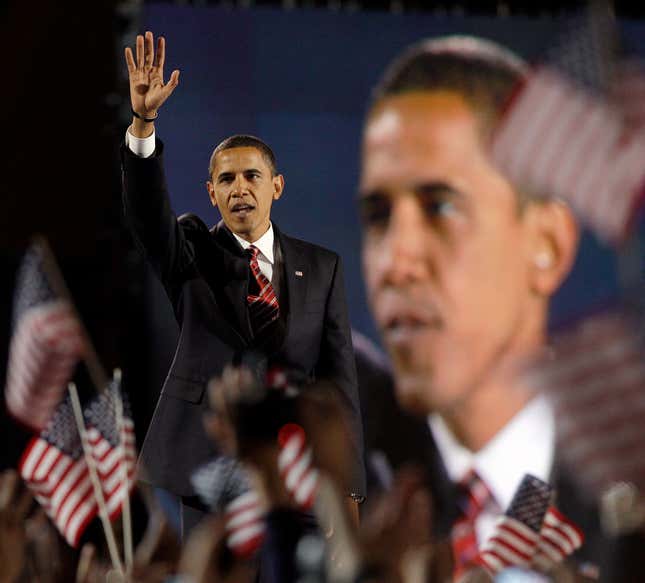
When thinking about how politics and news events impact our mental health, we frequently focus on negative impacts: coverage about police shootings, disasters, and violent terrorist attacks have been shown to spike public anxiousness, cause depression and even reactivate past trauma.
But sociologist Tony Brown was curious about how positive events might impact public health. So the Rice University professor and his team of co-researchers chose one of the brightest moments in recent U.S. history—the 2008 election of Barack Obama—and measured its impact on the mental health of black adults.
“We wanted to know if there were any health implications from this momentous occasion in U.S. history,” said Brown in a Rice News report.
The study, “‘Yes We Can!’ The Mental Health Significance for U.S. Black Adults of Barack Obama’s 2008 Presidential Election,” will be published in the next volume of the journal Sociology of Race and Ethnicity. Using data from the Behavioral Risk Factor Surveillance System, a nationally representative survey of 400,000 U.S. adults evaluating different health aspects, researchers honed in on the mental health of black adults 30 days prior to Obama’s election and 30 days after.
One survey question asked respondents to count the number of days they would consider their mental health to be “not good” over the last month. Before Obama’s election, black men on average counted four days when they experienced depression, stress, or “problems with emotions.” After he officially became the 44th president, the average number went down to three days.
This may not seem like a big change, so Brown, for context, referenced another study that analyzed the mental harm caused to black adults by nearby police shootings. In that study, participants reported a 0.14-day increase in mental health issues.
“The study’s findings are important because we do not fully understand what factors protect mental health,” Brown added. “Specifically, the findings demonstrate that sociopolitical shifts matter for the health of black men and that everyday conditions of life act as social determinants of health.”
Interestingly, black women did not experience the same mental health boost that black men did—in fact, they registered more poor mental health days. Before Obama’s election, black women reported 4.6 days out of 30 where they experienced mental health issues; after his election, the average went up to five days.
The reasons why are unclear, but Brown says a few explanations are likely, including the possibility that the election of the country’s first black president spiked concerns among black women about its backlash, death threats or the safety of the first family, “in the same way they would worry about their own husbands, fathers or sons.”
Brown and the study’s co-authors told Rice they plan on applying this style of research to other elections, including—(and here, I would like you to imagine me pouring a hefty cup of tea)—the effect of Donald Trump’s 2016 election on white women, including that 53 percent.

